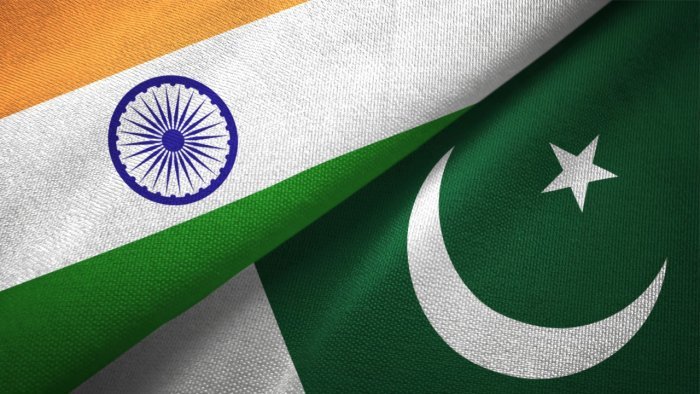India on Thursday responded to Pakistan Prime Minister Shehbaz Sharif’s conditional offer of talks by saying an atmosphere free from terror and violence is a prerequisite for normal neighbourly ties.
During an interview with AlArabiya news channel last week, Sharif said Pakistan “has learnt its lesson” after three wars with India and wants to “live in peace…provided we are able to resolve our genuine problems”. He said he had asked the United Arab Emirates’ (UAE) leadership to help bring the two countries to the negotiating table.
Asked about Sharif’s comments at a weekly media briefing, external affairs ministry spokesperson Arindam Bagchi said talks could be held only in the absence of terrorism and hostility. “We have said that we have always wanted normal neighbourly relations with Pakistan. But there should be a conducive atmosphere in which there is no terror, hostility or violence. That remains our position,” he said.
Hours after the airing of Sharif’s interview with AlArabiya, the Prime Minister’s Office in Islamabad linked any talks between the two sides to India restoring the special status of Jammu and Kashmir.
A spokesman for the Pakistan Prime Minister’s Office said “negotiations are not possible” without India revoking its 2019 actions on Kashmir. “The settlement of the Kashmir dispute must be in accordance with the UN resolutions and the aspirations of the people of Jammu & Kashmir,” the spokesman added.
During the interview, Sharif said: “My message to the Indian leadership and Prime Minister [Narendra Modi] is that let’s sit down on the table and have serious and sincere talks to resolve our burning issues like Kashmir, where flagrant violations of human rights are taking place day in and day out.”
Sharif also noted that both countries are “nuclear powers, armed to the teeth” and said: “God forbid a war takes places, who will live to tell what happened. This is not an option.”
The Indian side has maintained since the 2008 Mumbai terror attacks that there can be no talks without Pakistan taking credible and irreversible action against terror groups operating from its territory. The Indian side has also said that the onus is on Pakistan to create an environment free of terrorism and violence for any engagement.
Tensions between India and Pakistan peaked after the 2019 Pulwama suicide attack that killed 40 Indian troopers and brought the two sides close to war. That attack, and several others on Indian military facilities, were blamed on Pakistan-based Jaish-e-Mohammed (JeM).
In a separate development, India asked Pakistan to investigate the alleged sexual harassment of an Indian woman inside the Pakistan high commission in New Delhi.
Bagchi said the external affairs ministry has taken “serious note” of the complaint.
“We’ve raised the issue with Pakistani authorities and we have asked them to investigate the matter,” he said in response to a question. “We have also seen a statement by Pakistan’s foreign ministry saying that they are looking into the case,” he added.
Pakistan foreign ministry spokesperson Mumtaz Zahra Baloch said last week that the matter is being looked into.
“We attach high importance to proper etiquette and behaviour towards all visa and consular applicants. All our diplomatic staff are under strict instructions to conduct themselves professionally,” she said. Baloch said Pakistan has robust mechanisms to redress public grievances. “There is zero tolerance for misbehaviour and mistreatment of individuals visiting our missions,” she said.

